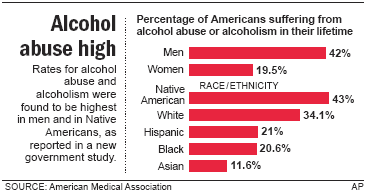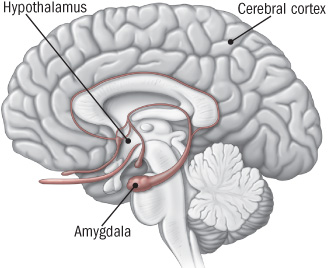We all know that obesity can have serious health risk such as heart disease, high cholesterol and increased risk of early death. According to a new study, obesity can cause other serious problems too, such as loss of vision and hearing.
Hearing loss, according to a study in the American Journal of Medicine, can be prevented by remaining at a healthy weight and by exercising regularly. A study was conducted which measured physical activity, body mass index, waist circumference, and hearing loss and included more than 68,000 women. The women were tracked for 20 years. The study showed that those with a higher BMI were at a 17-40 percent higher risk of hearing loss. It showed that women with a bigger waist circumference also had a higher risk for hearing loss, between an 11-27 percent increase. Walking for two hours a week can lower the risk by more than 15%. This study, however, did not account for genetics or other risk factors, such as a working environment with loud volumes. Women with these third-variables should be exempt from the study’s reported results.
According to another study, obesity can also increase the risk for loss of vision. Obesity is related to the creation of cataracts, which act as a thin film over the eye and impair vision. Age Related Macular Degeneration (ARMD) is another disease of the eye that can be caused by obesity. ARMD causes loss of central vision, and that even a 0.1 increase in the waist/hip ratio increased the risk of ARMD by over 75%. In addition, obesity can cause diabetes, which can cause damage to a blood vessel inside the retina. This study was not described in depth, so it is hard to say whether or not third variables were taken into consideration or whether they would impact the results.
Neither of these articles delved into the actual biological mechanism behind the results. If I were to hypothesize, I would say that it was due to the body working harder to do so many other things because of the increased body weight, that it put too much stress on the other parts of the body, such as the ears and eyes. Or, there could be nutrients in food that, when consumed in large amounts, are dangerous to those parts of the body.
It is hard to say what exactly causes these reactions, because the studies didn’t specify, but it is safe to say that these are just two more extremely dangerous risks of being overweight and obese. There are so many benefits to losing weight that it is always worth a shot to eat right and exercise.
 as well as the cause of death for those who later passed on. Things such as car accidents, murders, or freak occurrences could have caused many of these deaths, making that 18% less significant. On the other hand, with nearly 40,000 participants, there is a lot of diversity. With that many people, the chance that the risk of death with relation to walking at a slower rate seemingly becomes less likely to be a result of third variables or chance.
as well as the cause of death for those who later passed on. Things such as car accidents, murders, or freak occurrences could have caused many of these deaths, making that 18% less significant. On the other hand, with nearly 40,000 participants, there is a lot of diversity. With that many people, the chance that the risk of death with relation to walking at a slower rate seemingly becomes less likely to be a result of third variables or chance. They believe that since the environment is “too clean,” immune systems are fighting off foods rather than diseases, since there are fewer germs to be fought.
They believe that since the environment is “too clean,” immune systems are fighting off foods rather than diseases, since there are fewer germs to be fought.  The part that puzzled me was that children who received oxytocin did not necessarily do any better on the social-emotional test, although that, doctors say, could be due to the fact that it is extremely difficult for children to answer questions while remaining still for an MRI. So, while this was a small test, it showed a strong correlation between distribution of oxytocin and brain activity with regards to social behavior. Because of the promise that this study showed, a larger study will be conducted to reduce the probability that this is all due to chance.
The part that puzzled me was that children who received oxytocin did not necessarily do any better on the social-emotional test, although that, doctors say, could be due to the fact that it is extremely difficult for children to answer questions while remaining still for an MRI. So, while this was a small test, it showed a strong correlation between distribution of oxytocin and brain activity with regards to social behavior. Because of the promise that this study showed, a larger study will be conducted to reduce the probability that this is all due to chance. get drunk more quickly.
get drunk more quickly. They believe they have discovered evidence indicating the existence of a particle known as a WIMP (weakly interacting massive particle) which could be a form of a component of dark matter. The tricky thing is, they’d be impossible for any type of telescope to see. Now, that situation seems very bleak, so why exactly are scientists so darn excited? Especially when they’re not even sure what they’ve found is a result of dark matter? Basically, there’s not much exciting about it at all, in regards to actually getting more answers. All they’ve got is a hunch and some data that grows stronger everyday.
They believe they have discovered evidence indicating the existence of a particle known as a WIMP (weakly interacting massive particle) which could be a form of a component of dark matter. The tricky thing is, they’d be impossible for any type of telescope to see. Now, that situation seems very bleak, so why exactly are scientists so darn excited? Especially when they’re not even sure what they’ve found is a result of dark matter? Basically, there’s not much exciting about it at all, in regards to actually getting more answers. All they’ve got is a hunch and some data that grows stronger everyday.  An article on
An article on  This initiates the “fight or flight” instinct, which also happens when the body detects danger. Basically music will reverse all of these natural body reactions, and help to put oneself back into a normal state, or at least closer to it.
This initiates the “fight or flight” instinct, which also happens when the body detects danger. Basically music will reverse all of these natural body reactions, and help to put oneself back into a normal state, or at least closer to it. A more likely explanation, brought up by
A more likely explanation, brought up by 